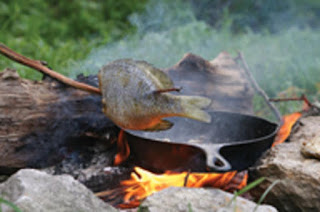PREPARED, NOT PANICKED
The temptation to panic is dangerous when in an emergency (reference: RULE OF 3'S TO SURVIVE). Young ones will mirror your feelings. Your efforts to be prepared will give you the confidence you need to reassure your children.
RELEVANCE OF ROUTINE
Look for creative ways to implement a daily routine for the sake of your children. This is comforting and offers a sense of stability from the parent to the child.
 PASTIMES
PASTIMESAmusements help pass the time when you are unable to travel. It is unlikely that you will have access to a source of power to operate electronic games. Craft supplies are wonderful to have on hand; this includes play dough, scissors, paper, tape, markers, glue and other assorted items. Take the time to introduce your children to board games, dolls, toy cars, blocks, puzzles and reading in order that they will be welcomed ‘old friends’ should they need entertainment. It is also wise to keep educational materials stocked (items such as work books, flash cards, pencils, reference books, etc.) in the event you find organized schooling is no longer an option.
HEALTHY ON PURPOSE
While access to remedies and treatments are available, utilize them to maintain your dental and overall health. It is far better to meet unexpected events with well-maintained health rather than ailments worsened by neglect. Stock any medicines required by your family members. Get into the habit of observing the sleeping, eating and toilet patterns of your family members so that you will detect illness early and be able to deal with it proactively. Train yourself to be observant of the impact circumstances are having on your loved ones. Otherwise, it will be easy to remain focused on your own challenges to the exclusion of others.
AVOID FAKE FOODS

The foods you consume today will affect your health tomorrow. Without proper training children could refuse to consume proper amounts of nutritious foods. Taste buds can be trained to appreciate a variety of tastes and textures available in real foods, but this can be difficult if the pallet has been compromised with processed foods and sugars. Take time to introduce new foods gradually in the diet. Learn about nutrition and basic food preparation -- and teach your children about these things also.
INFANTS & BABIES
A baby doesn’t require lots of gadgets for proper care. Just as yesterday’s mothers didn’t require music players, pacifiers, disposable diapers, bouncy seats, carriers, cribs and other accoutrements for infant care, neither are they necessities today. Babies need to be kept fed, clean, dry and warm.
 Nursing an infant is a skill that can be learned. Breastfeeding is worth the time investment as it is beneficial to both mother and infant. This can help insure that the smallest family member has a ready supply of nourishment. For bottle-fed babies, you will need to keep formula in stock.
Nursing an infant is a skill that can be learned. Breastfeeding is worth the time investment as it is beneficial to both mother and infant. This can help insure that the smallest family member has a ready supply of nourishment. For bottle-fed babies, you will need to keep formula in stock.Infants require protection from extremes of cold and heat as their bodies aren’t yet able to regulate temperature. Babies need to be shielded from the summer sun. Umbrellas are useful for this application. Layering clothing in the winter will help protect little ones from the cold. Zippered fleece sleepers can be placed over long thermal underwear for nighttime warmth. Two or three persons sharing a single bed helps to retain warmth during the night. Wool socks, hats and zippered fleece jackets can keep babies warm during the day.
SANITATION

During cold temperatures or when water is scarce, there is no need to expect that baths will be a daily occurrence. Select the warmest area you can find and show children how to quickly wash their face, hands, genitals and feet each day. Become diligent about washing hands before meal preparation and before eating. This becomes even more important when conditions are primitive. Take the time to teach older children about latrine construction, placement and proper disposal of waste.
USEFUL ABILITIES
Learning life skills gives children more confidence in uncertain circumstances. Teaching your children how to shop, stock a pantry, pitch a tent, build a camp fire, sew, repair small engines, perform CPR, first aid, garden and swim is an investment. Understanding what to do during a fire drill, how to fend off an attack and having practiced other scenarios are real confidence builders. Prepared children aren’t as likely to fall apart emotionally.
When preparedness is made part of your daily living, your children will be better equipped to deal with emergencies. Rather than be fearful, your young ones will understand what is necessary to manage a crisis. Strengthen your family today with these measures.









0 comments :
Post a Comment